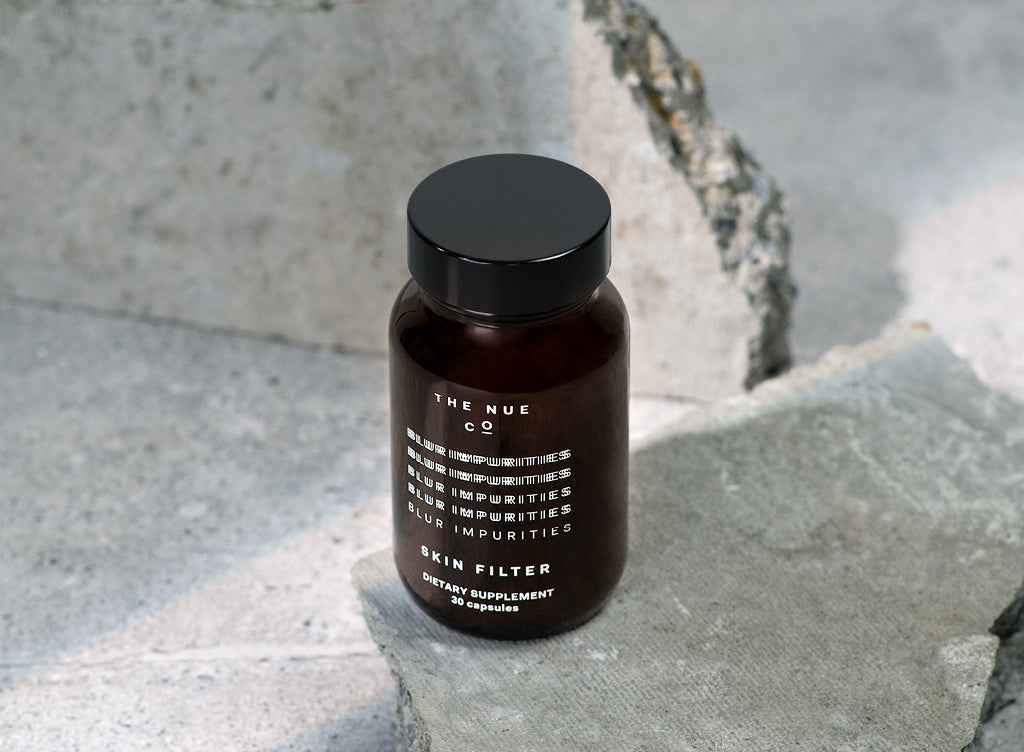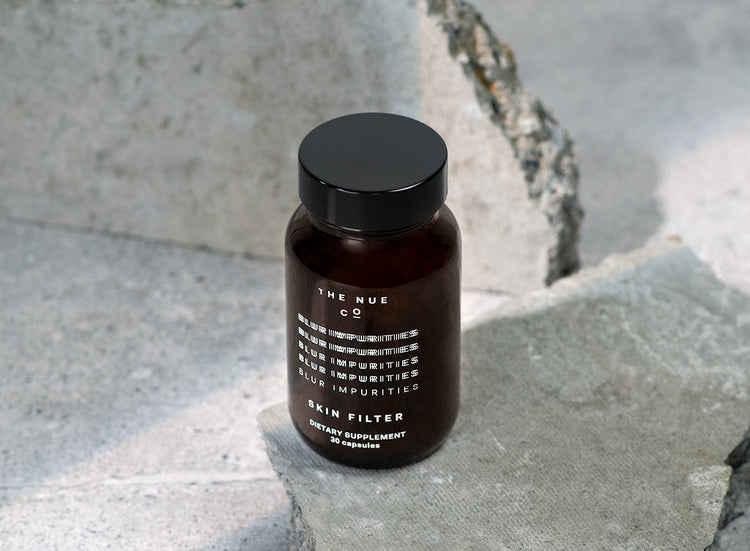The best skincare for menopausal skin


Changes to skin during and after menopause are common and completely normal—with studies showing that skin loses as much as 30% of its collagen content in the first 5 years of menopause, while oil production decreases, resulting in dryness, fine lines and loss of elasticity.
Reframing your thoughts about menopause can help dispel negative emotions that are associated with ageing—think of how you can support your body through this natural process rather than battle against the inevitable. As we like to say at The Nue Co., it’s about pro-ageing rather than anti-ageing.
What is menopause?
Menopause is a natural part of ageing that usually occurs between ages 45 and 55, caused by a change in the balance of the body's sex hormones. Ovaries stop producing as much of the hormone oestrogen and no longer release an egg each month, causing periods to stop.
This imbalance of female hormones (oestrogen and progesterone) and male hormones (androgens such as testosterone) can have a knock-on effect to many aspects of the body but don’t be alarmed by rumours of the so-called “34 symptoms of menopause”—it’s very unlikely that you’ll experience all of these, Hot flushes, night sweats and skin changes are among the most common symptoms you can expect to experience.
What happens to oestrogen during menopause?
“During menopause, our ovaries stop producing oestrogens. Although the adrenal glands and fat cells continue with production, ovaries have produced the greatest share of the body's oestrogens for decades, so when they quit the blood levels of oestrogens drop dramatically.”
+ MOOD
How does it work? A multivitamin for your hormones
What does it do? Aids the metabolism of serotonin, dopamine and melatonin
Key ingredient? B Vitamins and 100% RDA of Vitamin D
Shop now
How does low oestrogen affect skin?
One of the most visible symptoms of menopause can be the rapid decline in skin health. “Your hormones don't just control how you feel, they have a huge impact on the health of your skin,” explains Sarah Murphy, our Holistic Health Nutritionist.
“Our skin has an abundance of oestrogen receptors in most dermis and epidermis, and to a lesser extent progesterone receptors, which shows that skin is significantly affected during this hormonal shift. The reduction in oestrogen levels and the changing ratios of hormones in our body during menopause causes the slowing down of collagen and oil production, along with reducing the ability for our skin to retain moisture. With this, we can see skin become thin, itchy, dry and lose the plump glow it once had.”
Dry skin can make fine lines and wrinkles at the more expressive parts of the face, such as the neck, jawline, cheeks and eyes, appear more visible.
+ SKIN HYDRATOR
How does it work? Combats signs of ageing by repairing the lipid barrier
What does it do? Increases hydration, reduces wrinkles and improves elasticity
Key ingredient? Hydrolyzed collagen (collagen peptides) which is more easily absorbed and used by the body
Shop now
How can you improve skin elasticity?
Collagen is a protein responsible for our skin’s structure and elasticity so supplementing with a highly bioavailable form can help to top-up the body’s natural collagen production during menopause.
Vitamin A or retinol is a hero ‘anti-ageing’ skincare ingredient for its ability to boost collagen production and increase skin cell turnover, therefore reducing fine lines and wrinkles. However, some topical serums and creams can cause sensitivity depending on the concentration of retinol in the formula.
+ SKIN FILTER
How does it work? Like an ingestible retinol
What does it do? Improves skin luminosity, pigmentation, blemishes and elasticity from the inside out
Key ingredient? Beta-carotene which converts to Vitamin A once ingested
Shop now
What helps dry, itchy skin during menopause?
Natural oils called lipids create a barrier that reduces TEWL (transepidermal water loss) and protects skin from external aggressors like pollution and UV.
Alongside ingredients that soothe and hydrate like the aloe vera, hyaluronic acid and hydrolyzed collagen found in our SKIN HYDRATOR formula, topical skincare that focuses on replenishing the skin barrier encourages moisture to stay within the skin.
+ BARRIER CULTURE
How does it work? pH-friendly cleanser and moisturiser duo that rebuild the skin barrier
What does it do? Repopulates the topical microbiome, locks in moisture and protects against pollution
Key ingredient? Patented technology with pre, pro and postbiotics plus ceramides, niacinamide and squalane
Shop now
Do probiotics help with menopausal skin?
“Gut health is everything,” says Sarah. “A balanced gut full of balanced bacteria is directly correlated to the way in which we experience menopausal symptoms. Our guts are the basis of hormonal responses. There is a subset of bacteria in our guts called the estrobolome that specifically work to metabolise oestrogens. Just like the gut regulates and affects oestrogen levels, the natural decline of oestrogen has an effect on our microbiome as well. Dysbiosis in the gut correlates to an inflammatory state which further affects the conditions of our skin as we age.”
+ PREBIOTIC + PROBIOTIC
How does it work? Lays the foundations for healthy skin in the gut
What does it do? Reduces inflammation in the gut
Key ingredient? Spore-based probiotic alongside organic inulin
Shop now
Sarah’s parting advice on what helps with menopausal skin:
“Skip the toxic chemicals in your skincare products. Many of the chemical ingredients remove natural oils and dry out the skin. Also stay clear of synthetic dyes and preservatives.”
Shop all skin supplements